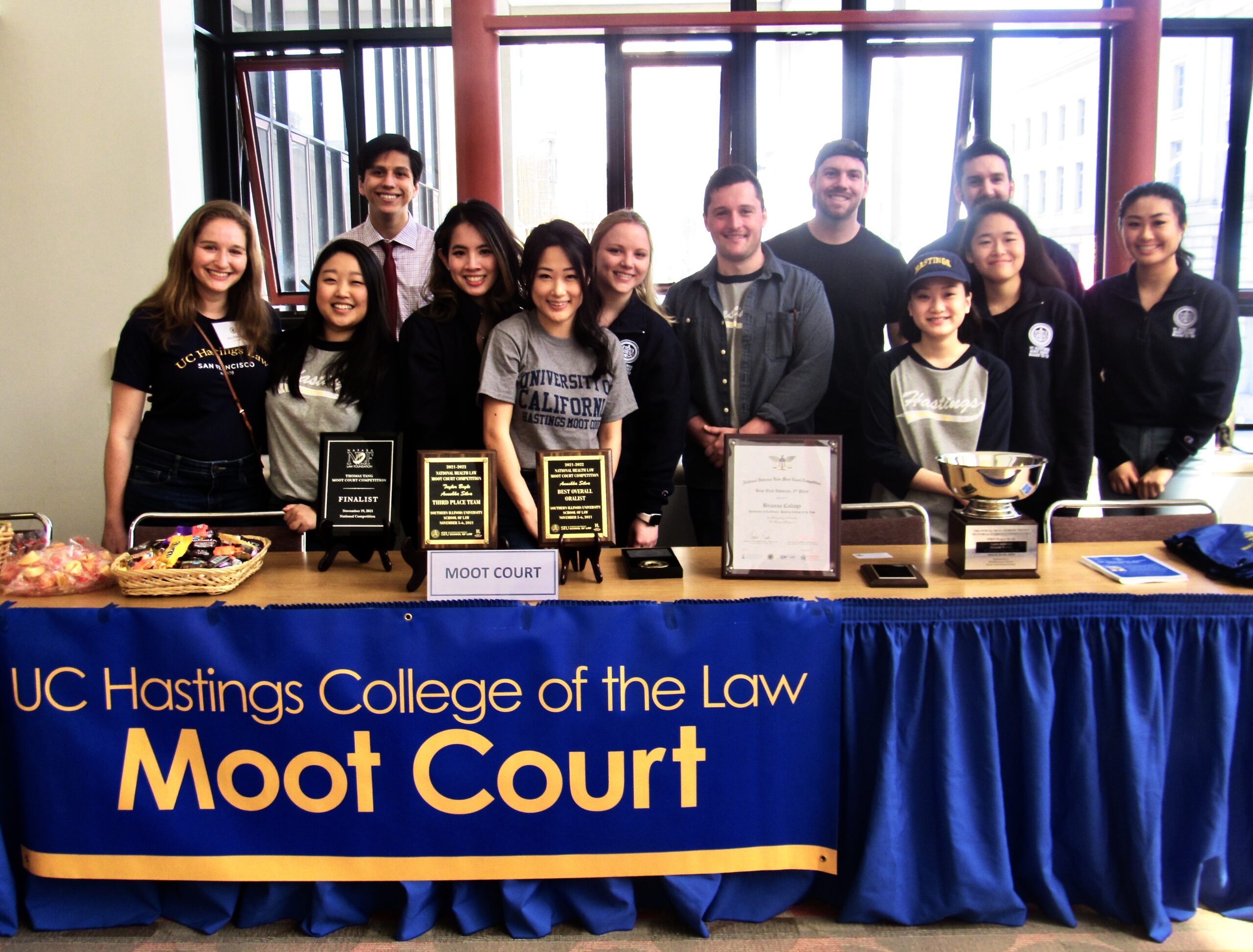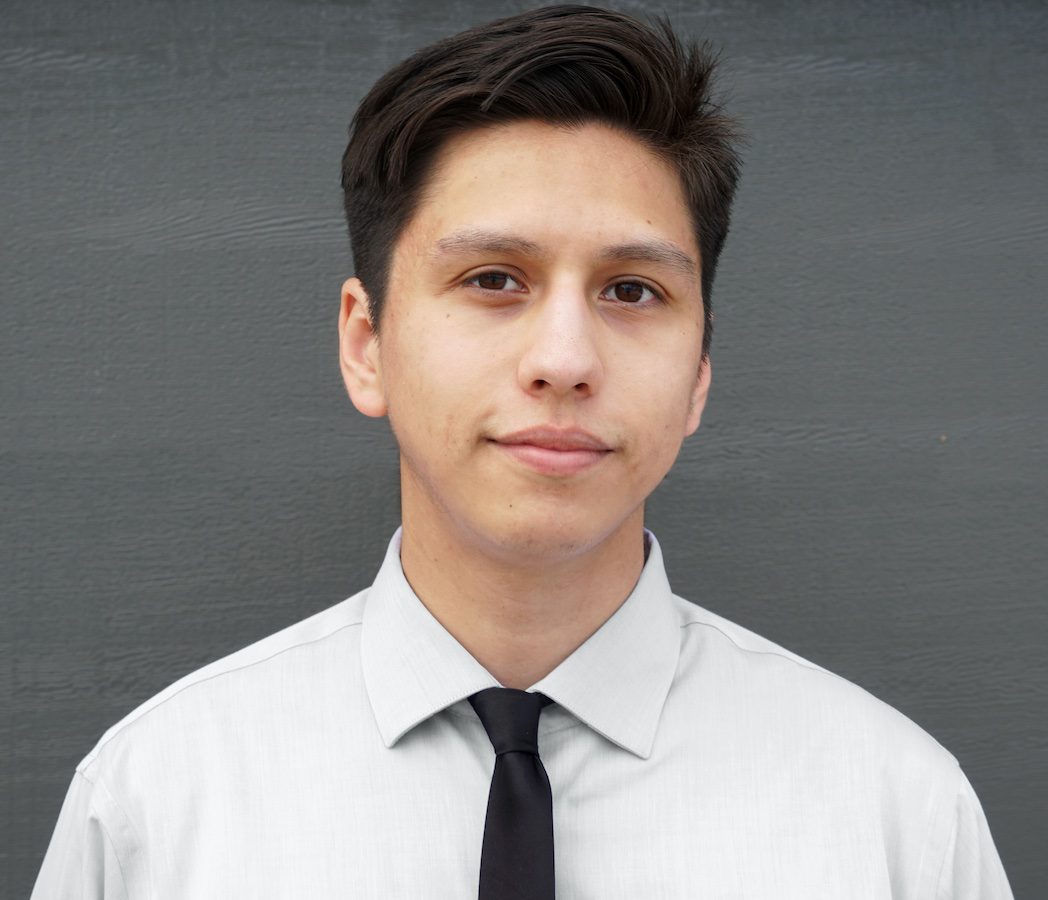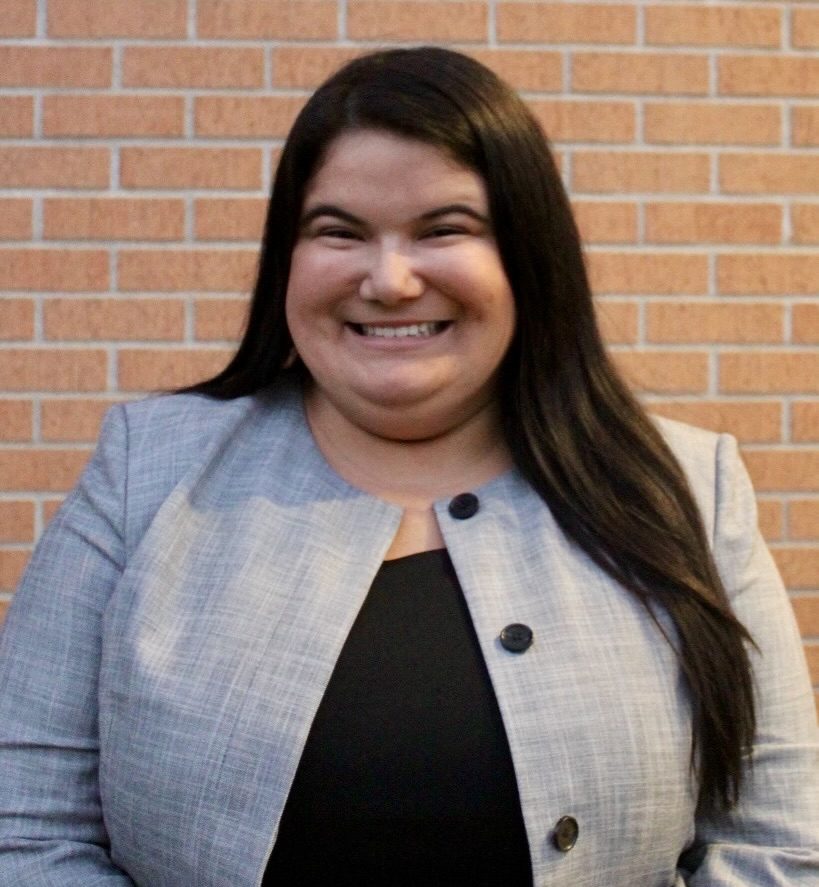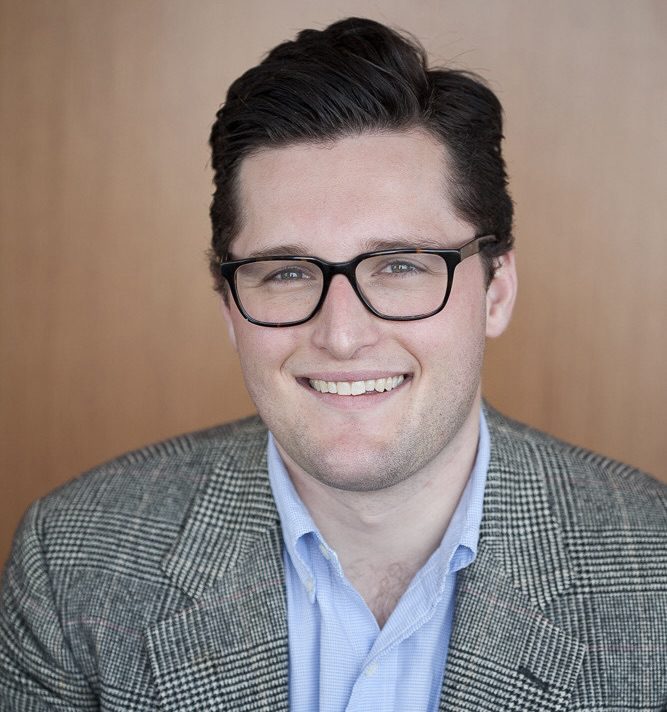Moot Court Experience Launches UC Law SF Grads Into Justice Department Careers

UC Law SF Moot Court Team has repeatedly ranked No. 1 in the nation.
As members of UC Law San Francisco’s Moot Court Team, students learn how to write briefs, perform oral arguments, and work as a team. These skills have helped the team rank number one in the nation four of the last five semesters.
Those skills also helped propel four recent graduates into jobs with the California Department of Justice (DOJ), where they work as deputy attorneys general, handling a variety of criminal and civil legal matters for the state of California.
“UC Law SF Moot Court Team gives law students the skills and practice needed to excel in their careers,” said Toni Young, senior assistant dean of Legal Research and Writing and Moot Court. “We are so proud that four of our Moot Court Team alumni were hired to represent the State of California in important legal cases and provide excellent representation and public service.”

Nathan Guerrero handles cases involving constitutional issues at the California DOJ.
Nathan Guerrero ‘22
Nathan Guerrero works in the California DOJ’s Civil Division, and used to serve on the UC Law SF Moot Court Board. He said Moot Court did more than prepare him in research, writing, and speaking.
“Moot Court was about working with others, teaching and learning from each other, learning to give and especially take criticism,” he said. “It was like a crash course in stress and time-management.”
He participated in the Hastings Appellate Project in law school, where he worked with an experienced appellate lawyer on active appeals, and was an intern at the San Francisco Public Defender’s Office.
Guerrero now handles cases involving constitutional issues, a subject he became well acquainted with when serving as staff editor of the Hastings Constitutional Law Quarterly. “I’m given a wide latitude on how a case proceeds,” he said. “That is to say, a case will be assigned to me and it’s mine until it closes – from complaint to appeal, should it go that far.”

Hannah Park represents California government agencies in wide range of legal issues and cases.
Hannah Park ‘22
Hannah Park said Moot Court helped her find her path as a future litigator, “Moot Court offered the perfect setting to discover my arguing style, have my skills observed and critiqued in real-time by practicing attorneys, and practice in a setting where I received constructive feedback from well-respected alumni before going out in the real world.”
As a deputy AG, she advises and litigates on behalf of California government agencies on cases ranging from state tort claims to complex constitutional issues in federal court.
A previous internship with the California DOJ gave her experience doing legal research, drafting motions and legal memos, and creating case plans, which she said helped prepare her for this role.
In law school, Park served as Senior Notes Editor for the Hastings Law Journal, worked as a teaching assistant for the Legal Research and Writing program, and earned CALI awards for legal research and writing.

Maddie Thomas works on post-conviction appeals court cases.
Maddie Thomas ‘22
Working in the DOJ’s criminal division, Maddie Thomas writes appellate briefs and presents oral arguments for cases in California appellate courts.
She said Moot Court gave her practical experience writing appellate briefs and presenting oral arguments – two key skills that she uses in her job, “Because of this past experience doing the actual work I do now, I was able to start my job (and career) with much more confidence than I otherwise would have, and I am so grateful for that.”
During law school, Thomas interned and externed with the California DOJ, California Supreme Court, and U.S. Attorney for the Northern District of California. But she described Moot Court as her most valuable and treasured law school experience.
As a deputy AG, she focuses on post-conviction cases, responding to criminal appeals on behalf of the People of California.

Alexander Vicas ’22 works on constitutional law and tort cases.
Alexander Vicas ‘22
Deputy AG Alexander Vicas advises and litigates on behalf of California government agencies primarily in federal court, though he handles some state court cases as well.
Vicas said Moot Court trained him to think and speak quickly on his feet, “Moot Court prepared me for the rigors of litigation and instilled a deep appreciation for the benefits of collaboration and the importance of positive teamwork.”
As a law student, Vicas served as a Moot Court Board member and editor of the Journal of Crime and Punishment and the Constitutional Law Quarterly. He said an externship with U.S. District Judge Charles Breyer and an internship with the California DOJ – both in San Francisco – helped prepare him for this role.
“Generally, my practice is confined to constitutional law and tort cases,” he said. “I hope to gain trial and appellate experience as well.”